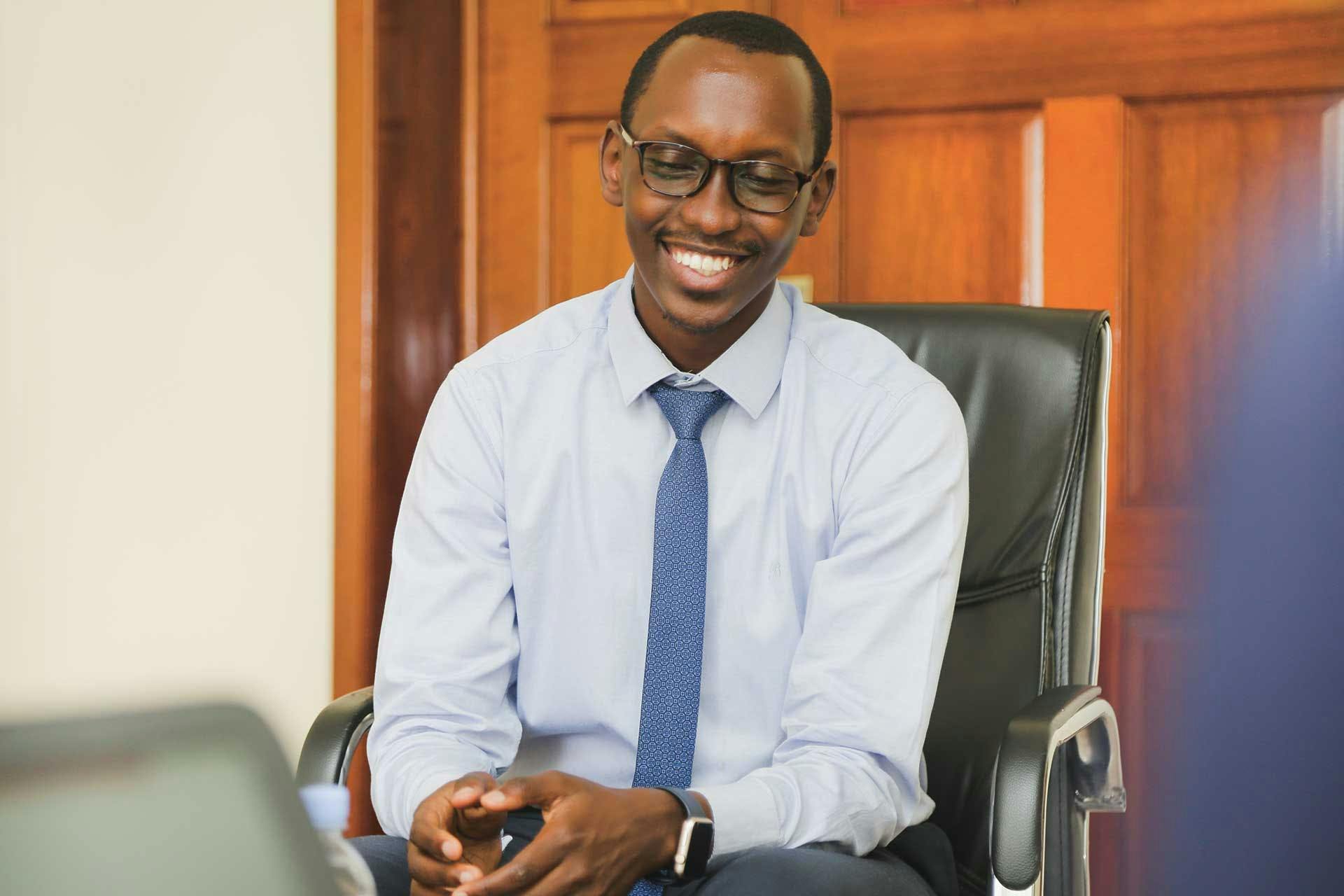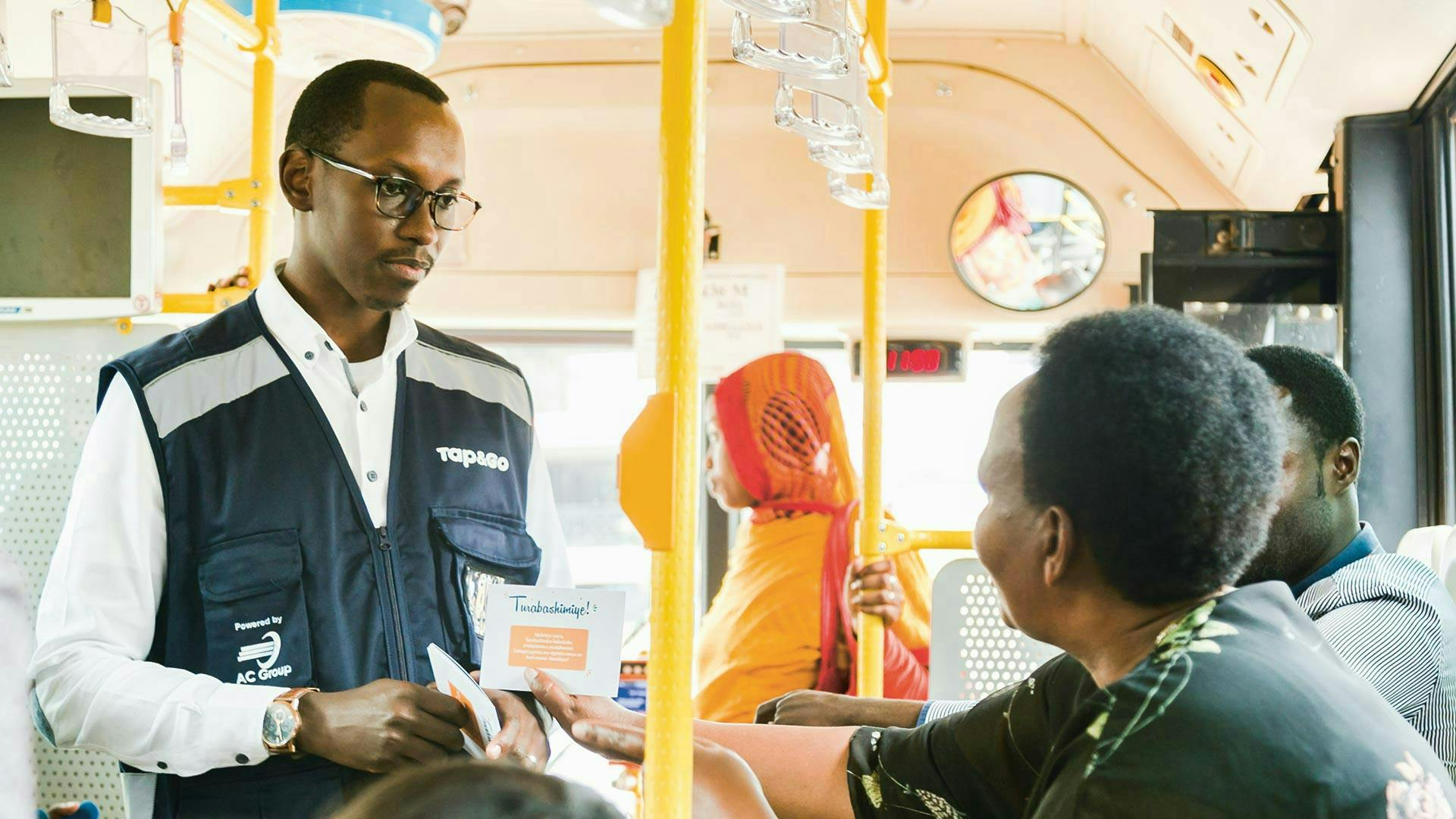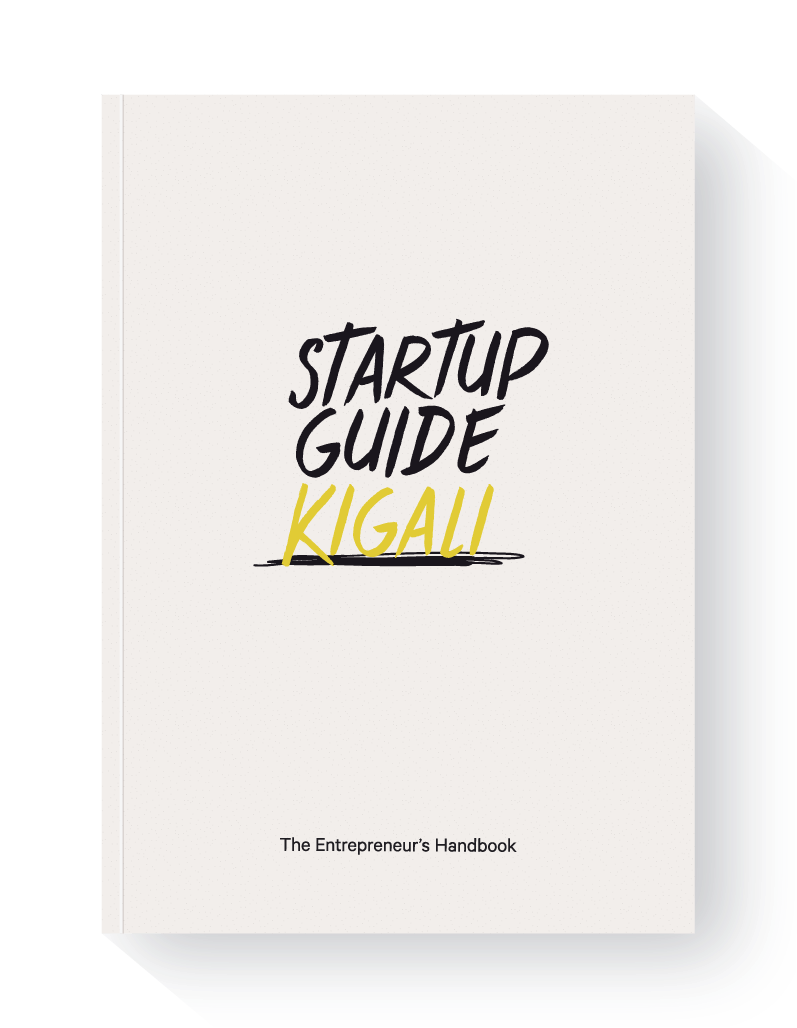How AC Group reinvented Kigali’s public transport
wandan tech company AC Group provides smart solutions to public transport. Since its development of the Tap&Go card in 2015, it has initiated cashless payments on all buses in Kigali, introduced 4G wifi on all buses and created a fleet-management system. Cofounder Patrick Buchana Nsenga details how AC Group was created and shares some insights into starting up in Kigali.
Cofounder Patrick Buchana Nsenga details how AC Group was created and shares some insights into starting up in Kigali.
How did the idea for AC Group come about?
AC Group was founded in 2013 and started operations in late 2014. As a student, I used public transport to commute from my residential area to the part of Kigali where my university was. It took 20 minutes on some days and an hour and a half on other days, even though the time and day of the week were exactly the same. It was very difficult to make plans around public transportation.
Out of curiosity, I asked what caused these delays and what could be done about them. I knew that this was not just a problem for me, but for everybody – working class people, students, people who had medical appointments, everybody.
I found out that bus companies were losing a big portion of their revenue to cash handling. This was mainly revenue lost due to leakage between the driver and the conductor who collected the money. I also found out that there were big price fluctuations. For example, if it was raining, and the driver knew you had no other means of commuting, the price would skyrocket.
Obviously public transportation was not a very attractive option for people who couldn’t afford this sudden hike in price. We thought about innovations that were used in the rest of the world and eventually introduced the Tap&Go card.
The Tap&Go card did two important things. First, it ensured price stability. Second, bus companies recovered the revenue that was lost due to leakage between the bus driver and the conductor. We learned that this leakage accounted for 30 to 40% of lost revenue, which is quite significant.
We then asked the bus companies to reinvest the recouped money into more buses to help public transport run more efficiently. As we grew, we kept on innovating and looking for ways to create an unmatched experience for commuters. Our ultimate goal is to create a product that makes public transport a more attractive option than commuting to work by car.
Could you talk a bit more about those innovations?
We are always thinking of new solutions. After introducing the Tap&Go card, we started building other solutions on top of it. In addition to the initial payment system, we added a fleet-management component. With this component you can see, for example, how far the next bus is from a stop.
By using the data created over the previous period, you can also match the number of buses with the number of passengers. Bus companies can basically optimize their fleet and send buses where they are needed at the appropriate times, which ultimately reduces delays.
We have also developed a second Tap&Go card product, which provides fast wireless internet onboard the buses. Commuters spend about forty-five minutes a day commuting on average and we want to make sure that their time is productive and enjoyable. Currently, we have about 300,000 people using wifi each day.
The Tap&Go solution has grown. Now all transactions on public transportation in Kigali are completely cashless. We started with the Tap&Go payment, added the fleet-management solution and then added 4G wifi.
We are also helping bus companies become more creditworthy to financial institutions by providing them with accurate information on how much money they have made. We give them the ability to buy new buses and reinvest revenue into their business. They now have more cash flow, which allows them to grow.
We have also added the utilization of data, mapping the movement of buses to passenger traffic. This data has helped the Government of Rwanda build up their Public Transport Generation 2 initiative, which is smart, scheduled public transport.

AC Group cofounder Patrick Buchana Nsenga. Photo: AC Group Ltd
Can you talk a little bit about your own entrepreneurial journey?
It started back when I was at university. Quite frankly, I never thought I would be an entrepreneur until I actually started the business. I like technology, and I was studying electronics and telecommunications. I looked at the gap that was there and thought that technology could be used to solve it. I founded the company on my technology background.
I then tried to find a mentor who had been in the entrepreneurship space. I had never understood that building a business is a lot more than just providing the technology. I had to invest a lot of time learning about management and how to set up a business that is not just technologically capable but has structures that allow the business to both grow and enable a technology built to scale.
My urge to make the business succeed and my desire to build public transport that could be used by everyone gave me the energy to keep pushing myself with the parts of business I didn’t like but had to learn.
Were you pretty much working alone at the beginning?
We started with a very lean team of about five people. I looked at one area where I didn’t have a lot of experience – public transport – and brought in someone who was familiar with that. We had two other people who were very good at hardware installations and we had other people who could sell. It was a beautiful mesh of skills. Everybody was so good at what they did that nobody had to do too much outside their field of knowledge.
We hired people who were committed and whose values aligned with our own.
Learning the business side was a challenge. What other challenges did you have to overcome?
The first challenge was to get funding. At the beginning, we raised money in bits and pieces. We would get money and then, after three months, it would run out and we would have to look again. As a business grows, you have to spend time looking for money when you should instead be focusing on your business. That was very difficult.
The second challenge was recruiting talent. We had a big vision and wanted to grow into a very big company, but we never had the resources to recruit the best talent. Instead, we hired people who were committed and whose values aligned with our own. We tried to train ourselves from the ground up to learn the skills that were needed to have a company at that scale. That was also very difficult.

Can you think of one mistake you made that was bigger than the rest?
Initially, part of our system was built outside the company and we kept putting off making a firm decision to build everything in-house. It took two years to make that decision. It should have been made earlier.
What about the best decision you made in this process?
The best decision we made in this process was to forego the profits we would have made much earlier and instead reinvest almost all of it back into the business. From the management to the shareholders, we agreed to reinvest almost everything to build for the future. This has had a big ripple effect because our growth has been exponential but also, more importantly, we have centered our growth around our core purpose. Constantly looking for funding would have caused us to forego some of the core developments and principles that have led us to where we are today.
Focus on the management side of the business as much as the technology.
Can you think of something that you wish you had known before?
The obvious one is to focus on the management side of the business as much as the technology. That would have made a big difference for us.
Do you have advice for other entrepreneurs?
As leaders, our primary focus is getting the right team, empowering them to do their jobs and constantly enhancing their strengths while working with them on their weaknesses. With that, you can guarantee victory over any obstacles and build a business that will grow exponentially.
What do you like about working in Kigali?
The best thing is the stakeholder relationships we have with the government and the bus companies. It’s such a relief to sit down with everyone, have discussions around the future and feel like they are listening. They are truly ready to support us and change regulation in order to accommodate some of the innovation around public transport. This is something I have not seen elsewhere – not only in our region, but on the continent.
Kigali is also a very beautiful place. It’s very green. Also, the people are lovely and you can actually hear birds singing every morning.
A version of this interview is included in Startup Guide Kigali. To learn more about the Kigali ecosystem and for more exclusive interviews, order your copy now!
Written by Kevin Hanley.
Repackaged by Hazel Boydell

